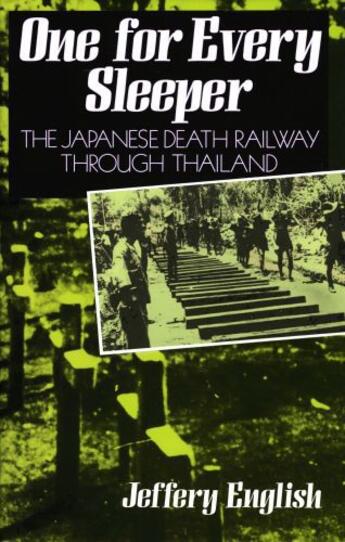-
Nombre de pages : (-)
-
Collection :
(-)
-
Genre :
(-)
-
Thème :
Non attribué
-
Prix littéraire(s) :
(-)
Résumé:
First written in note form on stolen lavatory-paper, this is the harrowing eyewitness account of 400 British prisoners of war put to work on the Burma to Siam railway. Jeffery English was a major in the 'N' Corps Signals Regiment when he and his men were captured by the Japanese at the fall of... Voir plus
First written in note form on stolen lavatory-paper, this is the harrowing eyewitness account of 400 British prisoners of war put to work on the Burma to Siam railway. Jeffery English was a major in the 'N' Corps Signals Regiment when he and his men were captured by the Japanese at the fall of Singapore. The author was among 3,000 men of H Force who were shipped north from Changi on 8 May 1943 to begin work on the railway. Their job was to excavate cuttings, using the most primitive of tools. The prisoners were half starved, ridden with malaria, cholera and dysentery, and frequently beaten with bamboo canes for not working hard enough: the death rate was horrendous. (Of the author's own squad of 400 only ninety-eight eventually survived.) The prisoners were treated with bestial cruelty, and reached the limits of human degradation. When the job was finally done, the men were returned to base camp. The death rate continued unabated, and putrefying bodies lay for days between the rows of bamboo beds. The prisoners were convinced that the Japanese would have killed them before surrendering if they could. Their lives were saved only by the speed of events following the dropping of the atom bomb. Every sleeper on the railway cost the life of a prisoner of war or coolie, and two out of every three men died.
Donner votre avis














